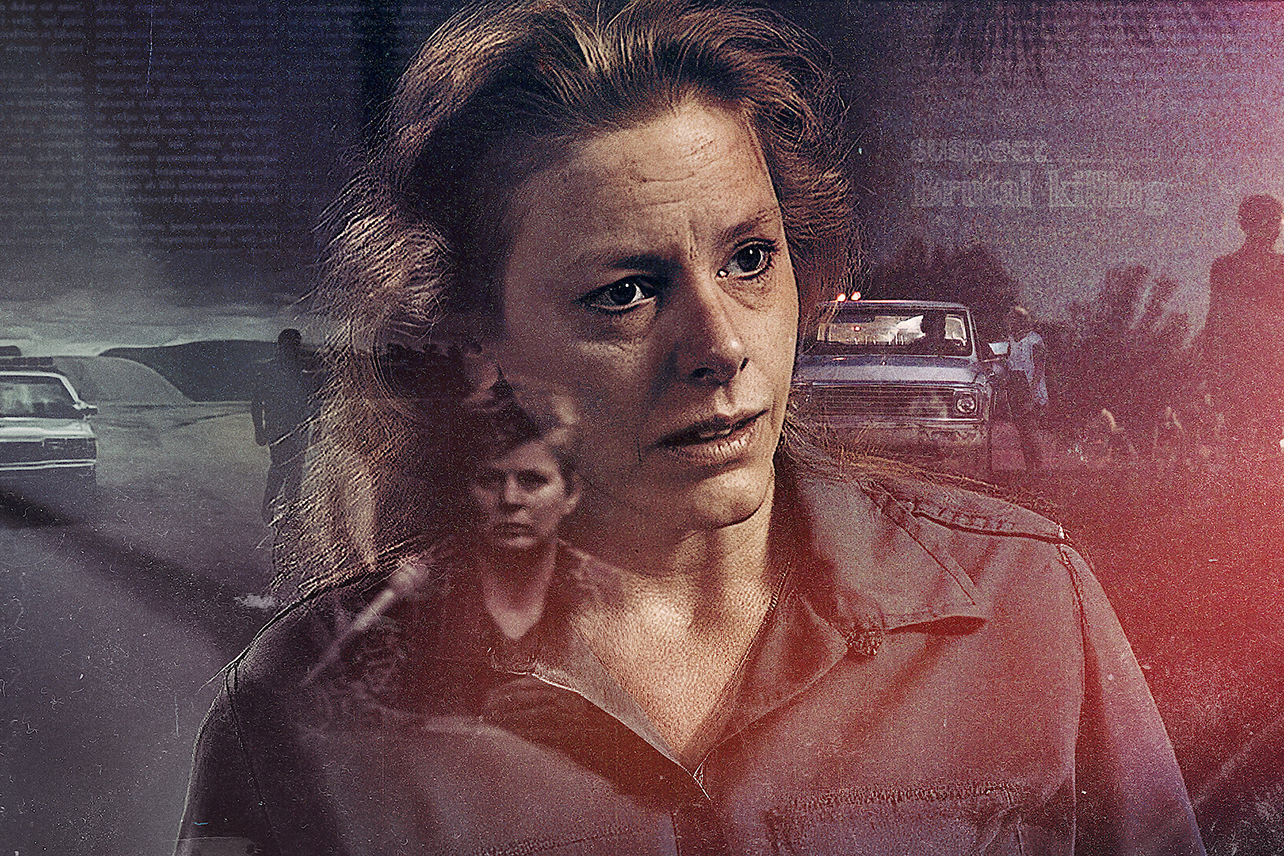**Aileen: Queen of the Serial Killers – Netflix Documentary Review**
Directed by Emily Turner and co-written by Turner and Jinx Godfrey, the Netflix documentary *Aileen: Queen of the Serial Killers* draws on extensive interviews with—and footage of—Aileen Wuornos herself for a compelling reassessment of her story.
Of course, Wuornos’ story has been told before. The true crime industry is a beast that always requires fresh sustenance, and this documentary finds valuable new angles as it examines her confession, 1992 trial, and 2002 execution against the facts of her life. It considers the sexual violence Wuornos experienced, as well as the Florida court system and wider culture that demanded a conviction for the woman who became known as “The hooker from Hell.”
—
### Aileen Queen of the Serial Killers: Stream It or Skip It?
**The Gist:**
It’s 1997, and Aileen Wuornos is waiting to die on Florida’s death row. This is no true crime reenactment, no Hollywood actress playing the part. This is the real woman—whom we see and hear on video—as she meets with filmmaker Jasmine Hurst and her crew. Wuornos wanted to tell Hurst the real story of her life and crimes, seeking to get right with God before the end.
But there’s a gleam in Wuornos’ eye. She’s gregarious, loves to be interviewed, and is exceptionally good at telling a story. At one point, she hugs Hurst and whispers in her ear, “You guys are gonna make millions off this.”
The footage that opens *Aileen: Queen of the Serial Killers* is fascinating for its combination of everything that makes Wuornos such a powerful subject for true crime: a woman who confessed to killing seven men, who wishes to die for her sins, clearly relishes the spotlight, yet stresses the inequities of her prosecution.
“She’s like the trifecta,” Hurst says in an interview for the documentary. “Gay, female, sex worker, and killing white men.”
—
### A Deeper Look: Life, Crimes, and Trial
As Wuornos recounts her rough upbringing and her life on the road as a young woman engaging in sex work just to survive, the film also interviews former Ocala, Florida Sheriff’s Office captain Steve Binegar, who led the Wuornos investigation. Binegar details the evidence found at the crime scenes and the profile developed of a female prostitute killing and robbing male clients.
The documentary includes grisly photos of bullet-riddled bodies and incredible grainy police surveillance footage capturing Wuornos’ live 1991 arrest outside the Last Resort, a Central Florida dive bar. When Wuornos confessed to police, footage from the interview room reveals her aim to take heat off Tyria Moore, the woman she loved.
Following the arrest and confession, the film delves into the lengthy court proceedings and murder trial. Florida state authorities controversially removed a female judge from hearing the case and featured a lead prosecutor, John Tanner, who was an avowed Christian and anti-porn crusader.
According to the ousted judge, Gayle Graziano, as well as Wuornos’ allies like childhood friend Dawn Botkins and adoptive mother Arlene Pralle, the state had no intention of giving Wuornos a fair trial.
News reports branded her “a wild, boozing lesbian,” painting a cut-and-dry picture of a woman murdering white men. Meanwhile, much of Wuornos’ own difficult background and the violent histories of some of her victims—which could have been admissible at trial—were largely ignored, shaping the story that has become legend.
—
### What Movies Will It Remind You Of?
While Charlize Theron won an Academy Award for her portrayal of Wuornos in *Monster,* other versions have appeared on screen. Peyton List played Wuornos in *American Boogeywoman,* a Lifetime movie that speculates about her story.
*Queen of the Serial Killers* does not claim to be the first true crime doc about Wuornos. Nick Broomfield made two earlier films—*The Selling of a Serial Killer* and *Life and Death of a Serial Killer*—both questioning how Wuornos’ story was exploited by authorities.
The documentary also includes footage from and discussion about *Overkill: The Aileen Wuornos Story.* Jean Smart played Aileen in that 1992 film, whose producers reportedly made deals with Florida police for case details “before she even pled a plea,” according to interviewee Jackie Giroux.
—
### Performance Worth Watching: The Woman Herself
This documentary challenges viewers to consider not just performances about Wuornos but her own performance.
*Queen* includes entire segments where Wuornos speaks candidly about her crimes in the first person, offering different details each time: during the death row interview with Hurst, in contemporaneous *Dateline* interviews with correspondent Michele Gillen, and even during her trial testimony.
Each provides a fresh perspective or reflective insight into her mindset.
—
### Memorable Dialogue
Film producer Jackie Giroux comments on Wuornos’ relationship with the media spotlight:
“She ordered everyone around like Faye Dunaway on steroids. Because the news media made her the queen of serial killers, and that was her notoriety. She wanted to be a star.”
—
### Sex and Skin
*Queen of the Serial Killers* does not shy away from graphic content. It includes disturbing crime scene imagery and frank descriptions of rape and sexual violence, unflinchingly portraying the brutal realities that shaped Wuornos’ life.
—
### Our Take
True crime today feels like a fully formed trend birthed by contemporary podcasts, but the archival footage and media reports in *Queen* remind us it has always been with us—along with the societal attitudes that make it popular.
In 1990, Aileen Wuornos became an overnight true crime sensation. Her story was simply too juicy. A lesbian woman murdering white men in Florida, where jury selection was compromised by people claiming divine intervention, and the lead prosecutor had a Christian cheering section outside the courthouse—the elements combined to cement her as a true crime legend.
The documentary’s title is a direct quote but stands up symbolically.
While Wuornos is certainly unique among serial killers, watching this film, it becomes clear that in many ways, she became “the queen of true crime” itself.
In her own words, Wuornos describes the moments after a violent sexual assault and shooting in self-defense; she did not premeditate her attacks. But once the murders began, her story grew, and post-arrest interviews and correspondence steadily built a narrative linked to larger societal themes: sexism, social conservatism, religious fervor, and spectacle.
By the time of her sentencing, Wuornos understood her story had become fodder for something much larger. She had become True Crime.
“I’ve been framed. I’ve been set up. I’m ready to die and get out of your evil,” she said.
—
### Our Call: Stream It
*Aileen: Queen of the Serial Killers* is a worthy reassessment of a true crime story that is an all-timer for the genre.
With incredible access to rare footage and numerous interviews with Aileen Wuornos herself, *Queen* gives a fair, multi-faceted look at her story: the punitive, the public, and ultimately, the deeply personal.
If you’re a fan of true crime or interested in a more nuanced portrayal of one of its most infamous figures, this documentary is definitely worth your time.
—
**Stream *Aileen: Queen of the Serial Killers* now on Netflix.**
https://decider.com/2025/10/30/aileen-queen-of-the-serial-killers-netflix-documentary-review/



